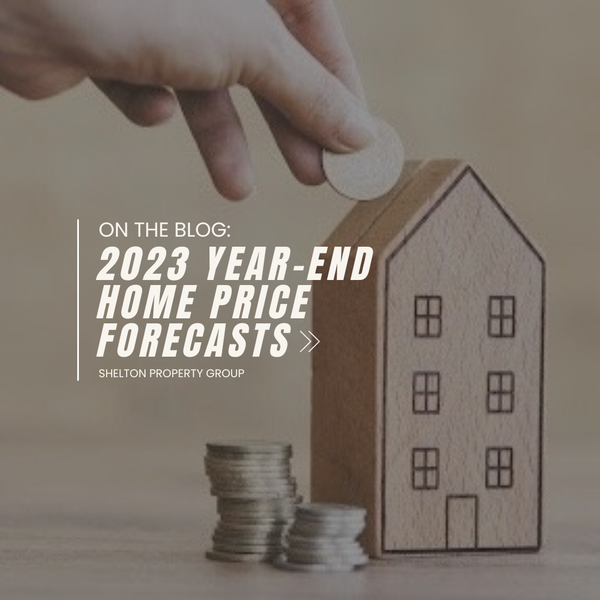2023 Year-End Home Price Forecasts
While I cannot provide real-time data or predictions, I can give you an overview of factors that may influence home price forecasts for the year-end of 2023. The real estate market is influenced by various factors, including economic conditions, supply and demand dynamics, interest rates, and government policies. Here are a few key considerations:
Market Conditions: The overall strength of the housing market, including factors like job growth, consumer confidence, and population trends, can impact home prices. If the economy remains robust and demand for housing stays high, it could lead to price appreciation.
Inventory Levels: The supply of homes on the market plays a significant role in determining home prices. If there is a shortage of inventory, as has been the case in many markets in recent years, it can drive up prices. On the other hand, an increase in housing supply could potentially moderate price growth.
Interest Rates: Mortgage interest rates have a direct impact on housing affordability. Higher interest rates can reduce buying power and potentially slow down price growth. Conversely, lower interest rates can stimulate demand and support price appreciation.
Government Policies: Government initiatives, such as tax incentives, lending regulations, and housing programs, can influence the real estate market and impact home prices. Changes in policies related to housing could have implications for price trends.
It's important to note that the real estate market can be unpredictable and subject to unforeseen events or economic shifts. Therefore, it's always advisable to consult with local real estate experts or economists who can provide more accurate and up-to-date insights specific to your area. They can analyze local market trends and provide more accurate year-end forecasts based on the prevailing conditions in your region.
Four Ways You Can Use Your Home Equity
Home equity refers to the value of your home that you own outright, minus any outstanding mortgage balance. It can be a valuable asset that can be utilized in various ways. Here are four ways you can use your home equity:
Home renovations or improvements: Using your home equity to fund renovations or improvements can increase the value of your property. By investing in upgrades such as a kitchen remodel, bathroom renovation, or adding additional living space, you can potentially increase the resale value of your home.
Debt consolidation: If you have high-interest debts, such as credit card debt or personal loans, you can use your home equity to consolidate those debts into a lower-interest home equity loan or line of credit. This can help you save money on interest payments and simplify your finances by having just one monthly payment.
Education expenses: Home equity can be used to fund education expenses, such as college tuition or vocational training. By accessing your home equity, you can potentially secure a lower interest rate compared to student loans, making it a cost-effective option for financing education.
Real estate investments: Home equity can be leveraged to invest in additional real estate properties. By using a home equity loan or line of credit as a down payment, you can purchase an investment property that has the potential to generate rental income or appreciate in value over time.
However, it's important to consider the risks associated with using your home equity, as it involves borrowing against your property. If you're unable to repay the loan, you could risk losing your home through foreclosure. It's crucial to carefully evaluate your financial situation, consult with a financial advisor, and ensure that you can comfortably afford the additional debt before using your home equity for any purpose.
Evaluating Your Wants and Needs as a Homebuyer
When entering the homebuying process, it's important to evaluate and prioritize your wants and needs. This will help you focus your search, save time, and make informed decisions. Here are some key factors to consider:
Budget: Determine your budget by assessing your finances, including your income, savings, and expenses. This will help you understand how much you can afford to spend on a home, including the down payment, mortgage payments, and ongoing homeownership costs.
Location: Consider the location that best suits your lifestyle and needs. Think about proximity to work, schools, amenities, transportation, and any other factors that are important to you. Research the neighborhoods you're interested in to ensure they align with your preferences and requirements.
Size and Layout: Evaluate your space requirements, including the number of bedrooms, bathrooms, and overall square footage. Consider your current needs, as well as any future plans that may impact your space requirements, such as starting a family or working from home.
Property Type: Determine the type of property that suits your lifestyle and preferences. Options include single-family homes, condominiums, townhouses, or multi-family properties. Each type has its own advantages and considerations, so weigh the pros and cons based on your needs.
Features and Amenities: Make a list of the features and amenities that are essential to you. This could include a specific architectural style, a backyard, a garage, a swimming pool, or a specific layout. Differentiate between must-haves and nice-to-haves to help prioritize your search.
Condition and Renovation Potential: Consider whether you prefer a move-in ready home or if you're open to doing renovations or updates. Assess your comfort level with potential repairs or remodeling projects and factor that into your search.
Resale Value: While it's important to focus on your current needs, it's also wise to consider the potential resale value of the property. Look for factors such as the neighborhood's desirability, property appreciation trends, and any upcoming developments that may impact the value.
Lifestyle Factors: Think about your lifestyle and how the home will support it. Consider factors such as outdoor space, proximity to parks or recreational areas, access to amenities like gyms or shopping centers, and any specific requirements related to your hobbies or interests.
By evaluating and prioritizing your wants and needs, you can streamline your home search and make informed decisions. It's important to stay flexible and open to adjustments along the way, as your priorities may evolve during the process. Working with a knowledgeable real estate agent can also help you navigate your options and find a home that meets your criteria.

Emily Shelton
Phone:+1(512) 924-3233




